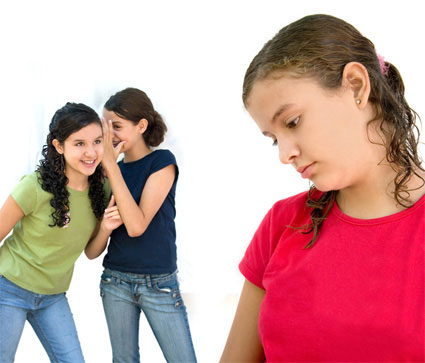There is a fine line between self-esteem and self-righteousness. Read on for more.Welcome to the jungle. The quest is to raise a kid that has a good sense of self. You've been told that praise is the key but be careful because what you haven't been told is that this key can also open the door to a pack of troubles if praise is the only thing you do!
Praise, like any tool for raising kids, can be used inappropriately.
Praise tends to imply attaching a value to a child for demonstrating particular behaviour. However, children are valuable and should be loved for the mere fact that they exist. Even though there is a connection, there is also a difference between valuing children and facilitating appropriate behaviour. While it is true that children who are valued tend to behave and perform better, children who are only praised and whose misbehaviours are not dealt with, tend to believe everything they do is all right and that the world revolves around them. This in turn leads to the development of self-righteousness.
Self-righteousness can best be described as an attitude about oneself. It is characterized by a feeling of being important to the exclusion of anyone else, so that what the child wants or feels or does, counts for everything above anyone else. Kids with this kind of attitude tend to be bossy, telling others what to do, or loners because no one else can measure up. While valuing a child is absolutely important for the development of a healthy sense of self, praise without direction, feedback and consequences, turns out to be a prescription for a self-righteous attitude.
Rather than self-righteousness, self-esteem is the true prize to be sought in terms of a child's healthy sense of self. Self-esteem is relational. With self-esteem the child not only feels good about his or herself individually, but also in relation to others. Self-righteousness is egocentric while self-esteem is social.
Children with healthy
self-esteem understand and respond to limits. They feel good about themselves at no one else's expense. These children tend to be kind and considerate.
Here are some ways to
boost self-esteem of children:
Listen to Your Children Earnestly
Sometimes parents tend to ignore when children want to tell something to them. Avoiding children can hurt their self-esteem and
confidence. Therefore, parents must listen earnestly to what their children want to say irrespective of their age.
Spend Quality Time
Parents must spend quality time with children. No matter how busy the schedule is, parents must take some time out from it for their children. Parent-child bonding is very important for boosting the self-esteem of children.
Polish Their Social Skills
It is important to encourage children to mix with other children and open-up in order to boost their self-esteem. Encourage them to come out of their cocoon and talk their heart out. Do not put any kind of obstacle in the way of their growth and development and let them grow freely.
Give Them Age-Appropriate Responsibilities
Giving age-appropriate responsibilities to children is good for improving their self-esteem. Give them simple chores like folding clothes, keeping their toys and books back in the rack, washing vegetables etc. so that a sense of responsibility develops in them.
Involve Them in Decision Making
Parents can involve children in simple decision making in order to make them feel important. Simple decision making can involve deciding the lunch or dinner menu of the day, the kind of books that they would like to read etc.
Apart from the above mentioned things, parents can do a lot of other activities to boost self-esteem and confidence of children. For truly improving the self-esteem of children it is vital to adopt a positive parenting approach and encourage them to develop a strong will power to accomplish their goals in life.































